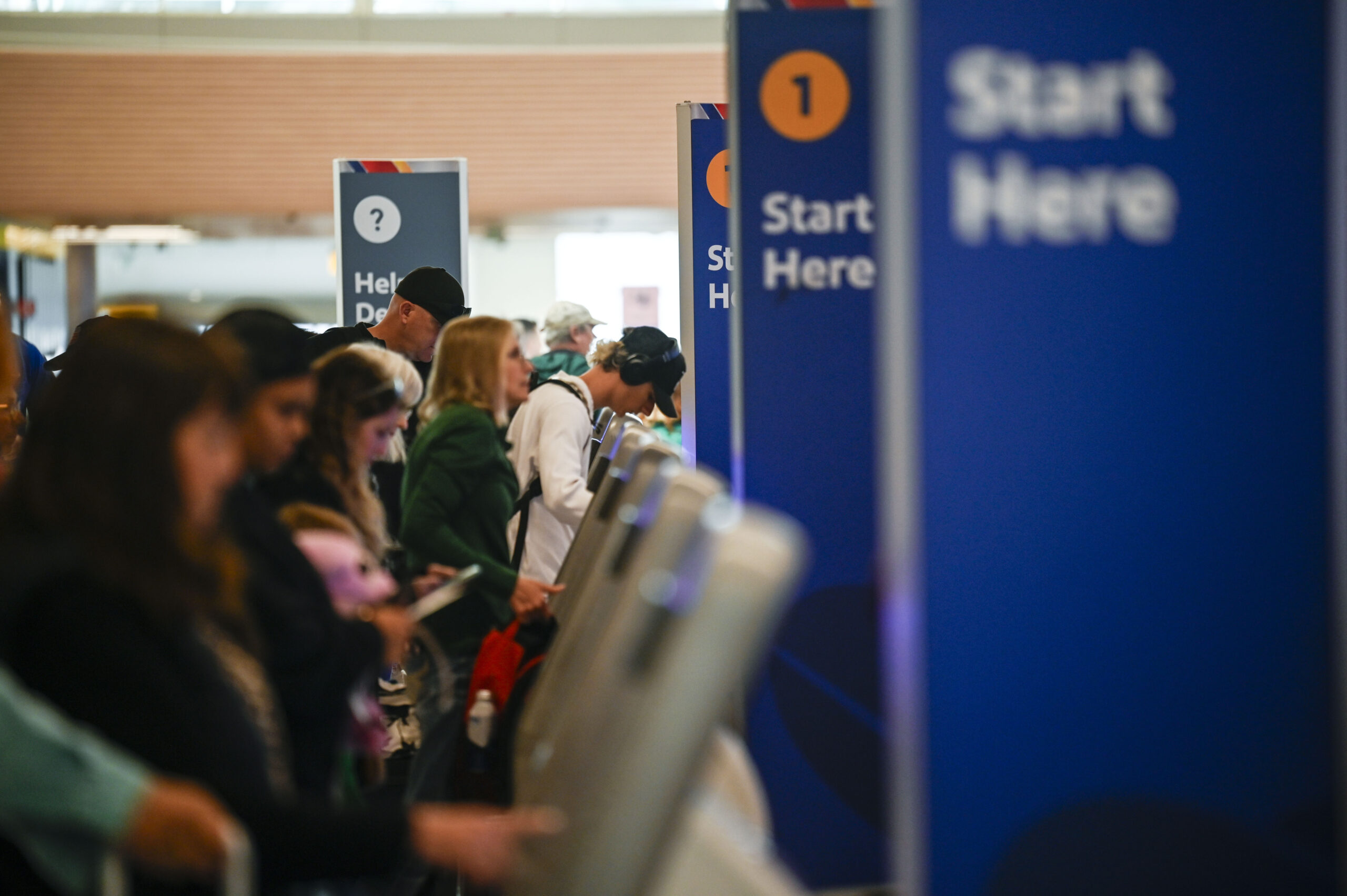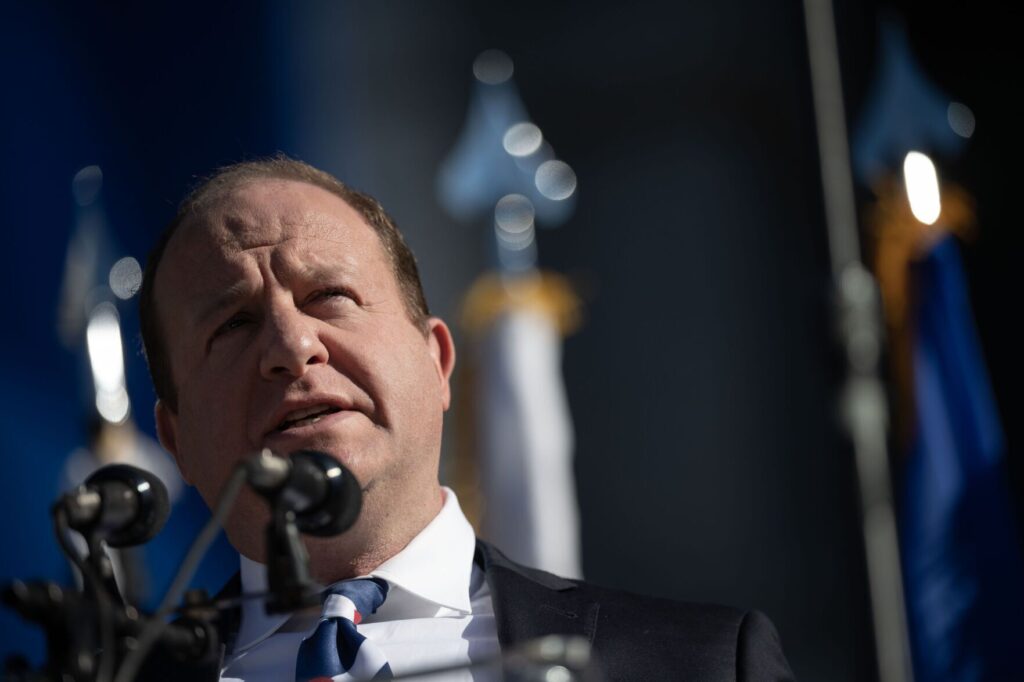DIA seeks federal OK to pay for salaries of air traffic controllers

The Denver International Airport is seeking permission from the federal government to pay for the salaries of air traffic controllers amid news that the Federal Aviation Administration plans to reduce air traffic by 10% across 40 “high-volume” markets beginning Friday morning to maintain safety during the ongoing government shutdown.
Although it’s not immediately clear whether the 40 “high-volume” markets officially include DIA, that scenario is likely. Colorado’s biggest airport is among the busiest in the world. Last year, some 82.4 million passengers passed through the airport.
In a statement Wednesday, airport authorities said they requested that the FAA allow DIA to use airport revenue to pay for the wages of air traffic controllers. That request seeks a waiver on any FAA policy that prohibits the use of airport revenue to support air traffic controllers and other federal employees at DIA.
Some 1,800 federal employees work at DIA.
Airport officials added that, in asking for the waiver, they will also request reimbursement from the federal government for covering air traffic controllers’ wages once the federal shutdown is resolved.
“This is a critical time for travel both here at DEN and around the country,” Phil Washington, DIA’s chief, said in the statement. “Staffing issues are already being identified at a number of airports, impacting travel. As the shutdown drags on, air traffic controllers, in particular, are being stressed unnecessarily,”
“As part of our airport family, it’s our hope that we can reduce the hardship on them by covering their wages during the shutdown, with reimbursement by the FAA later,” he added. “We would love to be able to do more and provide wage support for all the federal workers at DEN, as they are all critical to our operation, but given the number of federal employees, we are only able to support controllers at this time.”

DIA also launched a food and essentials pantry program for employees of the FAA, the Transportation Security Administration (TSA), U.S. Customs and Border Protection (CBP) and other federal workers who continue to work at the airport without pay during the federal government shutdown.
Airport officials said they are actively seeking donations from the public – canned goods, grains, toiletries, baby supplies, etc. – to help keep the pantry stocked.
Also on Wednesday, the FAA said it would reduce air traffic by 10% across more than three dozen markets. The reduction stands to affect thousands of flights nationwide because the FAA directs more than 44,000 flights daily, including commercial passenger flights, cargo planes and private aircraft.
Air traffic controllers have been working unpaid since the shutdown began on Oct. 1. With some calling out of work, staffing shortages during some shifts have led to flight delays at a number of U.S. airports.
Citing growing staffing pressures, FAA Administrator Bryan Bedford said the agency would not wait for a crisis to act.
“We can’t ignore it,” he said.
Bedford and Transportation Secretary Sean Duffy said they would meet with airline executives later Wednesday to determine how to safely implement the reduction in flights. Until then, both declined to name the affected markets.
Bedford said a list would be released sometime on Thursday.
“If the pressures continue to build even after we take these measures,” Bedford said, “we’ll come back and take additional measures.”
Southwest Airlines said it is evaluating potential impacts to its schedule and would reach out as soon as possible to customers whose travel plans may be impacted.
“We continue to urge Congress to immediately resolve its impasse and restore the National Airspace System to its full capacity,” the carrier said.
The FAA sometimes slows down or stops flights from taking off toward an airport due to weather conditions or when there aren’t enough controllers and other personnel or facilities are unable to pick up the slack. Last weekend saw some of the worst staffing shortages of the shutdown, which became the longest on record early Wednesday.
From Friday to Sunday evening, at least 39 different air traffic control facilities announced there was some potential for limited staffing, according to an Associated Press analysis of operations plans sent through the Air Traffic Control System Command Center system. The figure, which is likely an undercount, is well above the average for weekends before the shutdown
During weekend periods from Jan. 1 to Sept. 30, the average number of airport towers, regional centers that oversee multiple airports and facilities that monitor traffic at higher altitudes announced the potential for staffing issues was 8.3, according to the AP analysis. But during the five weekend periods since the shutdown began on Oct. 1, the average more than tripled to 26.2 facilities.
Most controllers have continued to work mandatory overtime six days a week during the shutdown. That leaves little time for a side job to help cover bills, mortgage payments and other expenses unless controllers call out.
Major airlines, aviation unions and the wider travel industry have urged Congress to end the shutdown.
Wednesday’s announcement came on the heels of Duffy warning a day earlier that there could be chaos in the skies next week if the shutdown drags on long enough for air traffic controllers to miss their second full paychecks next Tuesday.
Duffy said the FAA wanted to take a proactive approach, instead of reacting after a disaster. He pointed to the deadly mid-air collision in January between a commercial jet and a military helicopter near Ronald Reagan Washington National Airport.
“We learned from that. And so now we look at data, and before it would become an issue, we try to assess the pressure and try to make moves before there could be adverse consequences,” Duffy said. “And that’s what’s happening here today.”
The Associated Press contributed to this article.







